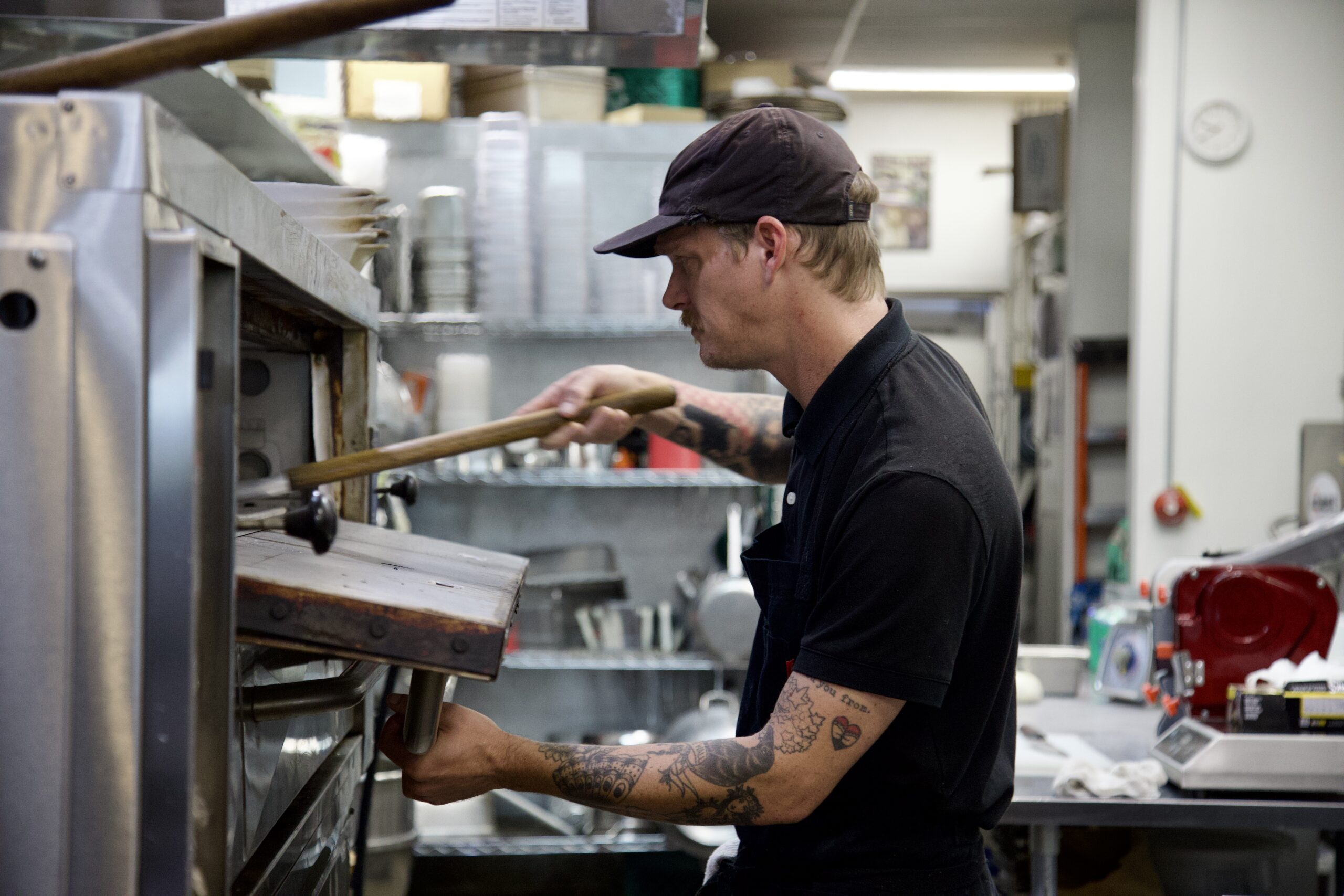
When Kris Savage and John De Lorenzo, along with a couple of other college friends, first began their agroponics business in their backyard, growing mushrooms wasn’t part of the plan.
“We were trying to find a better way to get CO2 into the greenhouse,” said De Lorenzo.
“So, we built a mushroom chamber off to the side to see if we could do it naturally,” Savage added.
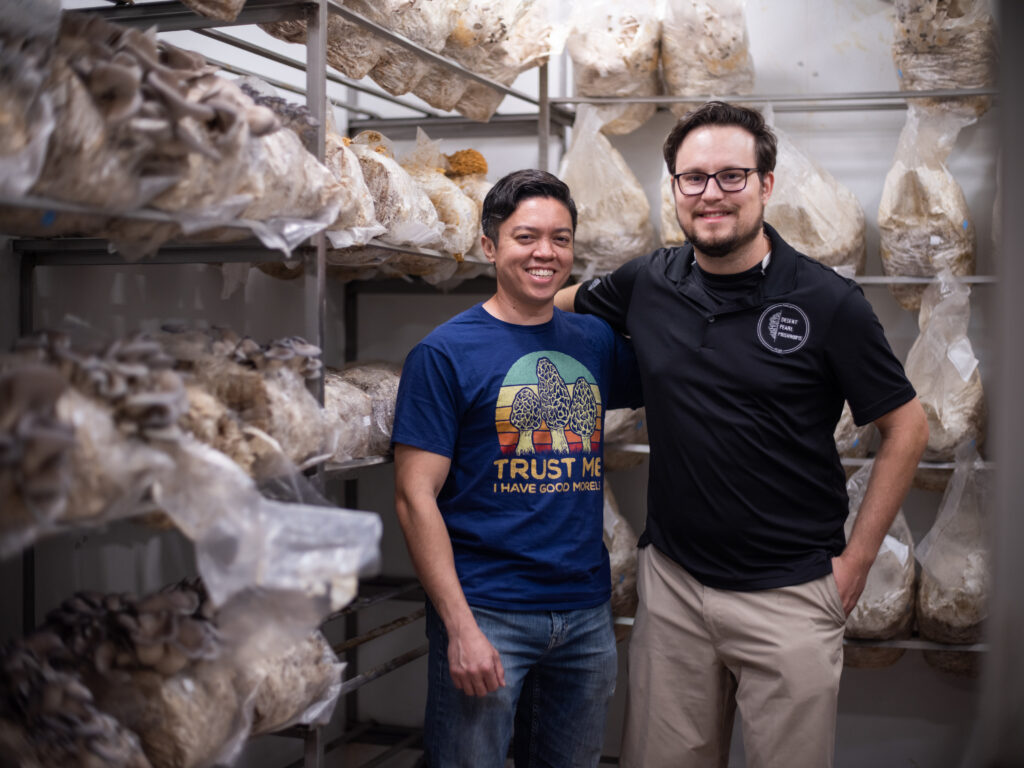
Then a strange thing happened, the mushrooms took over and the guys had mushrooms growing everywhere. A friend bought some mushrooms and took them to a farmer’s market where they sold like hotcakes.
Being bright young men (De Lorenzo has a BS in chemistry and a BA in Italian Languages and Literature; Savage has a BS in Engineering/Industrial Management)(all from the University of Arizona,) they soon realized that growing mushrooms might be easier to manage and more profitable.
“We had like two pounds a week and we thought we’d struck gold,” said Savage.
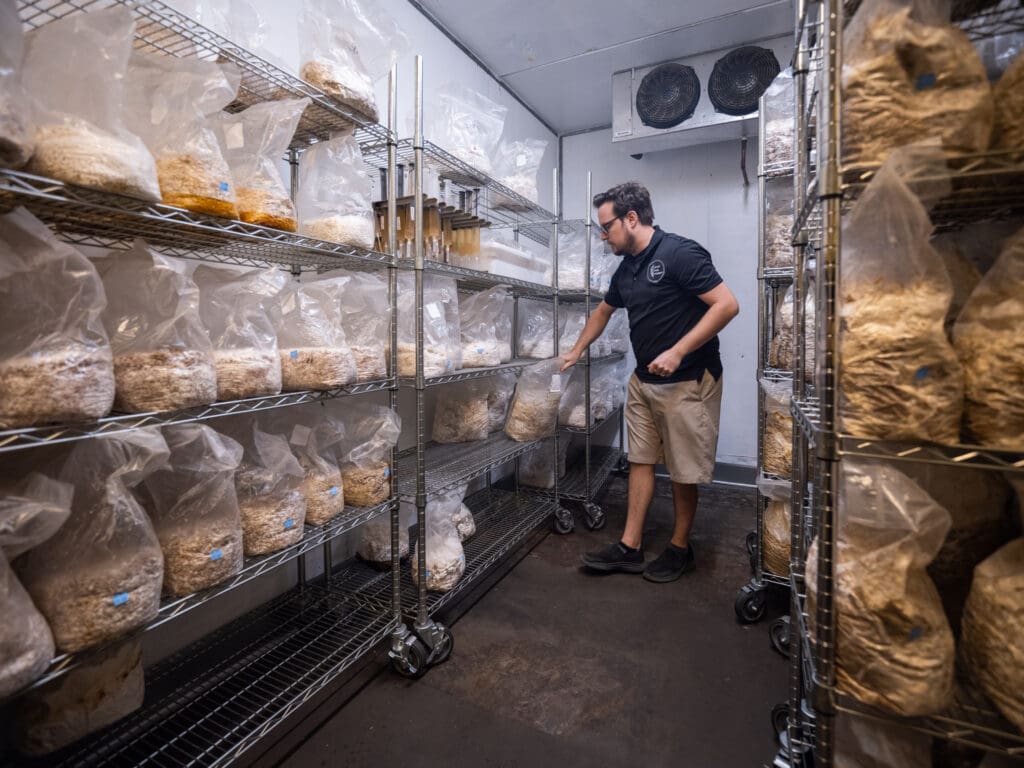
Soon two pounds became 10 pounds, 10 pounds became 100 pounds, and Desert Pearl Mushrooms became a full-fledged business.
Desert Pearl Mushrooms is an industrial laboratory, or in culinary terms, an urban farm. Today, they harvest between 380 to 400 pounds a week. Out of necessity, they moved to the current location in 2020.
The mushroom business was booming until COVID hit and they had to adapt.
“We were already servicing several restaurants and small markets in town when everything shut down,” said De Lorenzo.
Orders were canceled and they were forced to give away pounds of mushrooms. Although they took the downtime to develop the space, the pandemic could have been the end of their enterprise. But Tucsonans have a habit of connecting with one another and finding ways to support “local.”
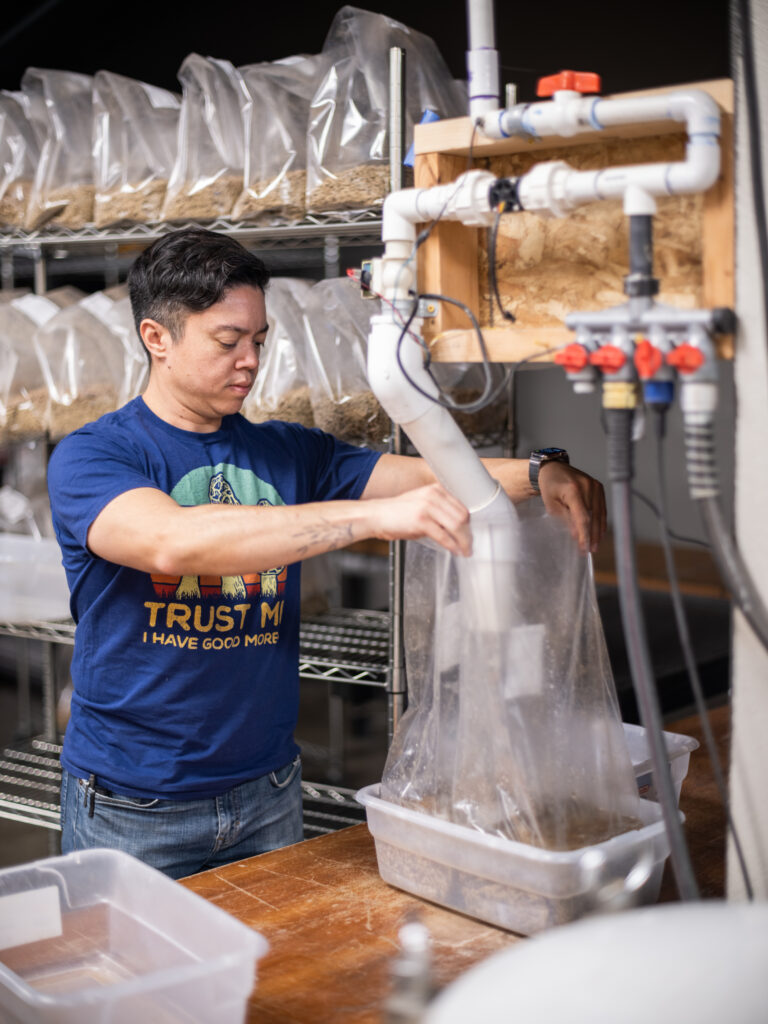
“In a serendipitous moment during the height of the pandemic, we began working with Desert Pearl to fill our delivery orders in our new role as a local market,” said Kristine Jensen, owner of Gallery of Food. “They’ve been lovely to work with, especially as we are a hybrid market/catering outfit. Plus, urban mushroom growers are great examples of sustainable agriculture, which we totally get behind!”
In 2020, Crooked Tooth Brewing Company used their oyster mushrooms to create a sour beer called, That’s What Friends Are Spore. The following year, The Beer Travel Guide. Listed the beer as one of the “Best American Beers of 2020.”
Words like mycology, substrata, and saprophytic roll off the team’s tongues but you get the feeling that they are having fun and love sharing their knowledge with us mere mortals.
Most of our mushrooms are tree-borne varieties, which means they help decompose dead or fallen trees. So, where do you find enough trees in the desert to grow all those mushrooms? You make them.
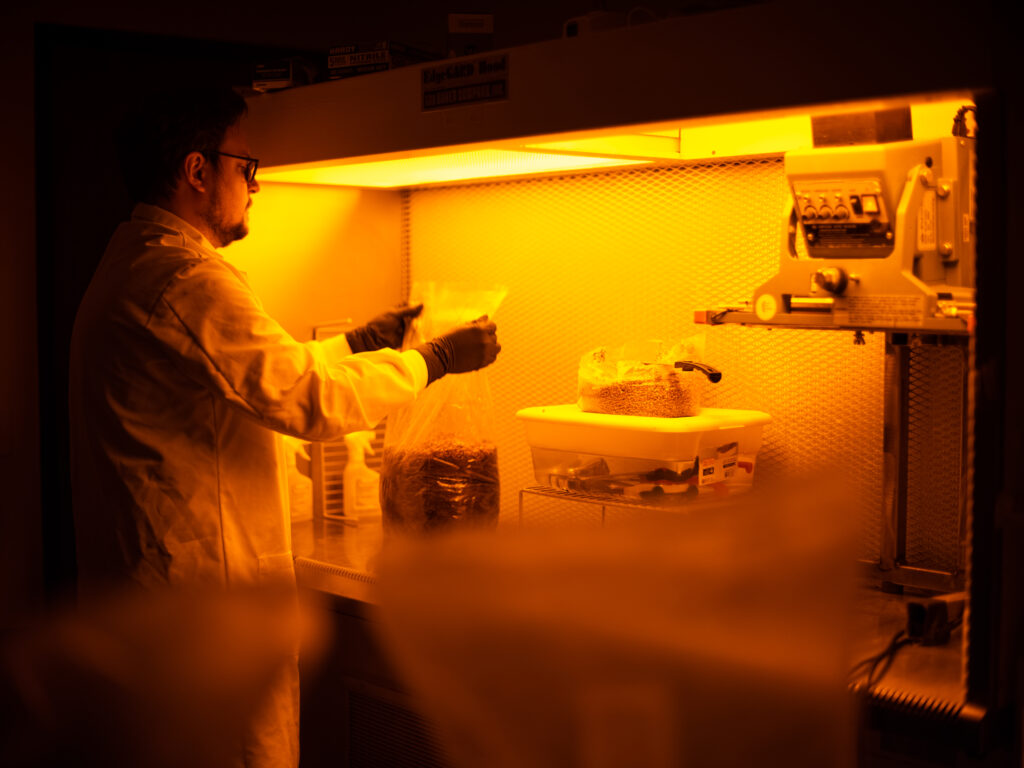
“The material we use to make the simulated logs comes from various feed suppliers and other farmers,” said Savage. “The substrate material comes from agricultural byproducts such as hardwood sawdust, wheat bran, soybean hulls, and other roughage that mushrooms can use as their own food source.”
The materials are compressed using autoclaves to create the ideal place to “fruit” the various mushrooms. The spent logs are then recirculated to other farms and gardens, thus completing nature’s circle.
The process is called inoculation, where we introduce the individual mushroom genetics (inoculum) to its sterilized substrate block, or growing media (the simulated tree logs), in a clean-air environment to mitigate pathogenic contamination,” said Savage.
They use a giant syringe and a machine that looks like it came from a mad scientist’s lab.
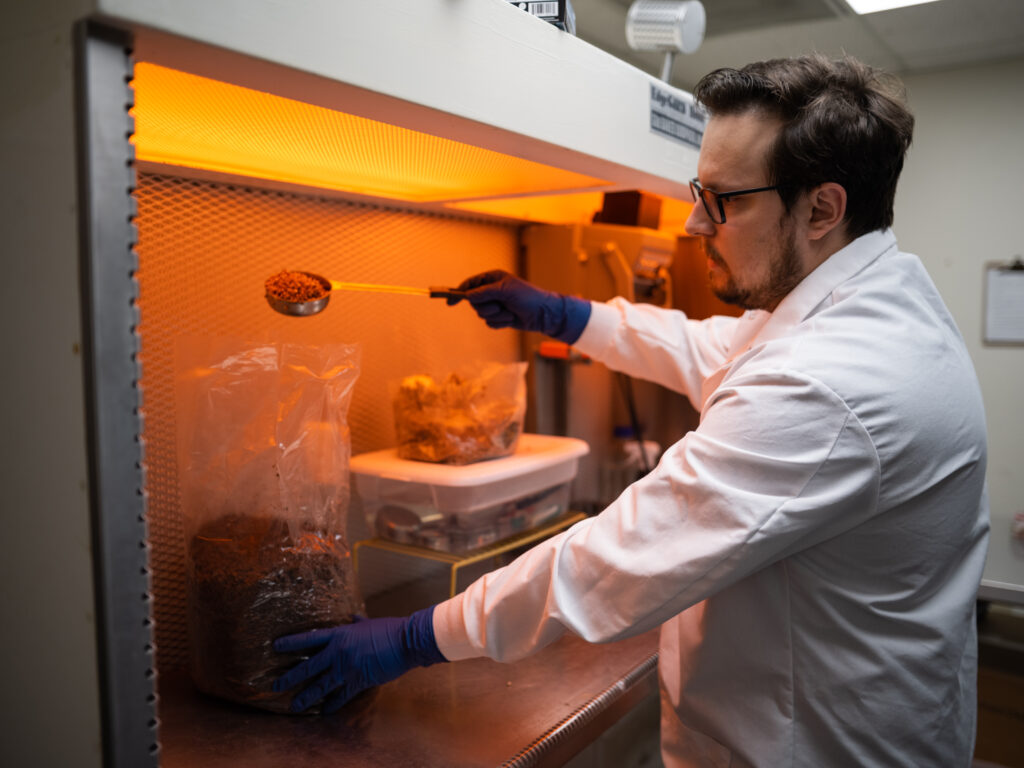
“The machine is called a Laminar Flow Hood, which is a large medical-grade HEPA air filter box,” Savage added. “It’s used to blow a continuous wall of clean air (99.999% free of airborne contaminants) over the workspace so that no other living organisms enter the sterilized substrate except for the mushroom organism itself.”
The mushrooms then spend time in one of the custom-built grow rooms, where temperature, light, and humidity are controlled and the mushrooms can “focus” on fruiting.
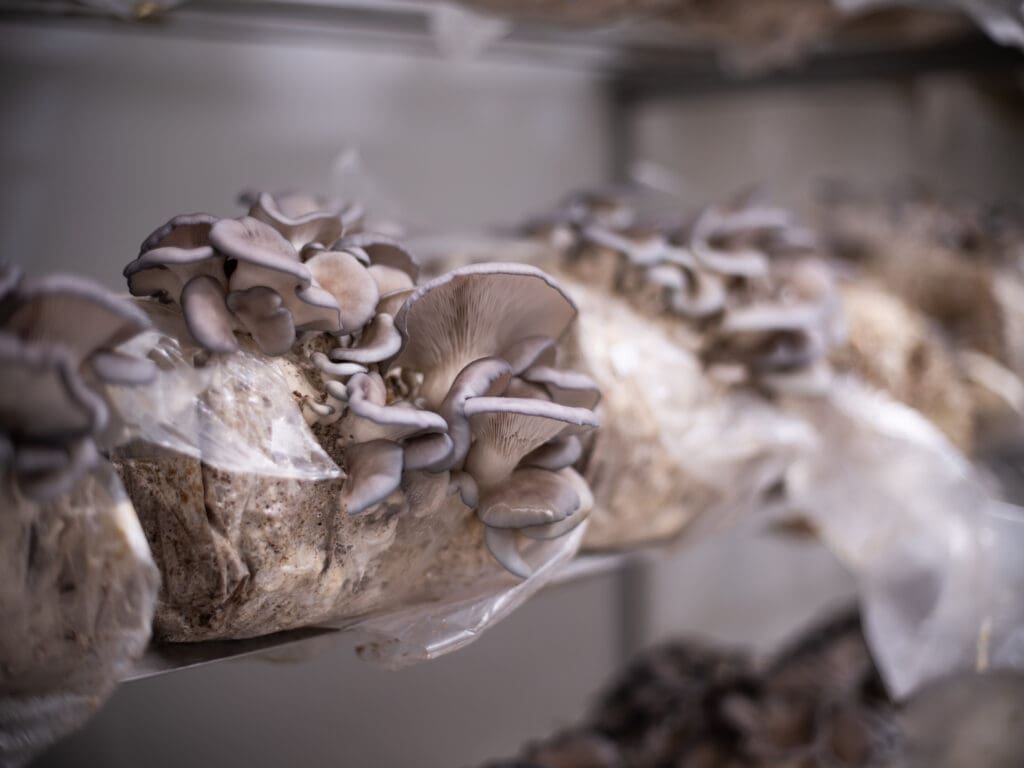
“We try to keep them comfortable and happy throughout their entire lifecycle,” said De Lorenzo, “They reward us with consistent, large flushes of fruiting bodies to harvest.”
Desert Pearl Mushrooms grows about 30 varieties of mushrooms, including eight different strains of oysters, lion’s mane, chestnuts, shitakes, and an assortment of others. Mushrooms are harvested a day or two ahead of market day, so they are as fresh as fresh could be.
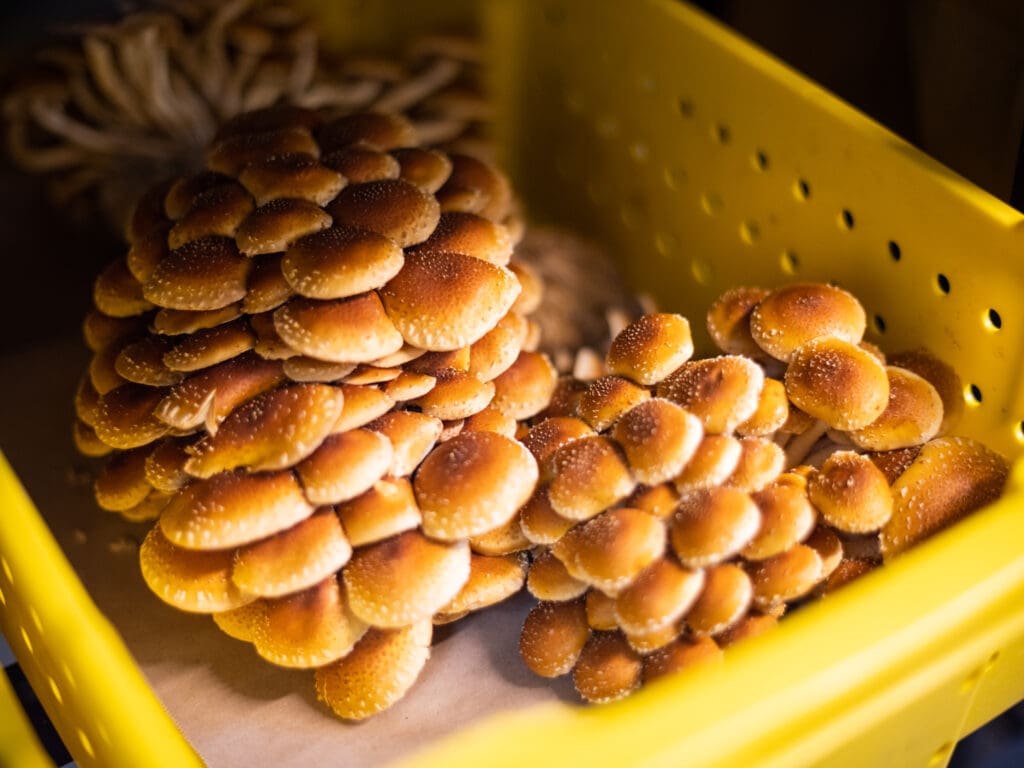
Lucky diners can enjoy dishes featuring their mushrooms on the menus at BATA, Canyon Ranch, Vivace, Maynards Market, and Flora’s Market Run. Additionally, Ren Coffeehouse serves a lion’s mane and chaga mushroom latte.
“We’re so happy to have Desert Pearl in Gallery of Food. They’re a hit in the market as well as on our menu,” said Jensen, “We sauté lion’s mane and oyster mushrooms for our mushroom torta, which has been a crowd favorite! They consistently find their way into our soups and savory baked goods too. It’s fantastic being able to work with such a great product, it really lets us do what we do best, and for that, we love Desert Pearl!”
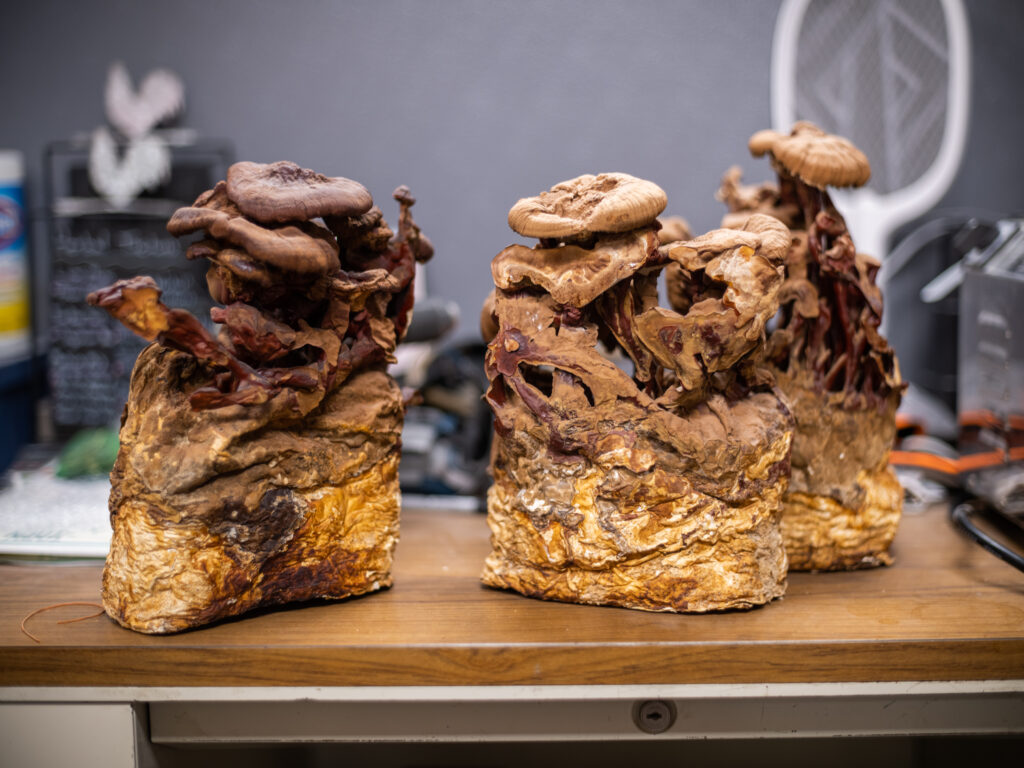
Doug Levy, owner and Executive Chef at Feast, sings their praises, “We still buy from them every week. Excellent quality, and they’ll grow specific mushrooms for us as they’re able- for example, they did Lion’s Mane mushrooms for us for our Mother’s Day menu. Kris is easy to work with, knowledgeable, and is continually working on new projects- like shiitakes, which they’ve started growing already, and enokis, which are still a work in progress. Kind, gracious people with an excellent product.”
The various mushrooms can be found at 5 Points Market & Restaurant, Time Market, Tucson Community Agriculture, and at all of the Heirloom Farmers Markets.
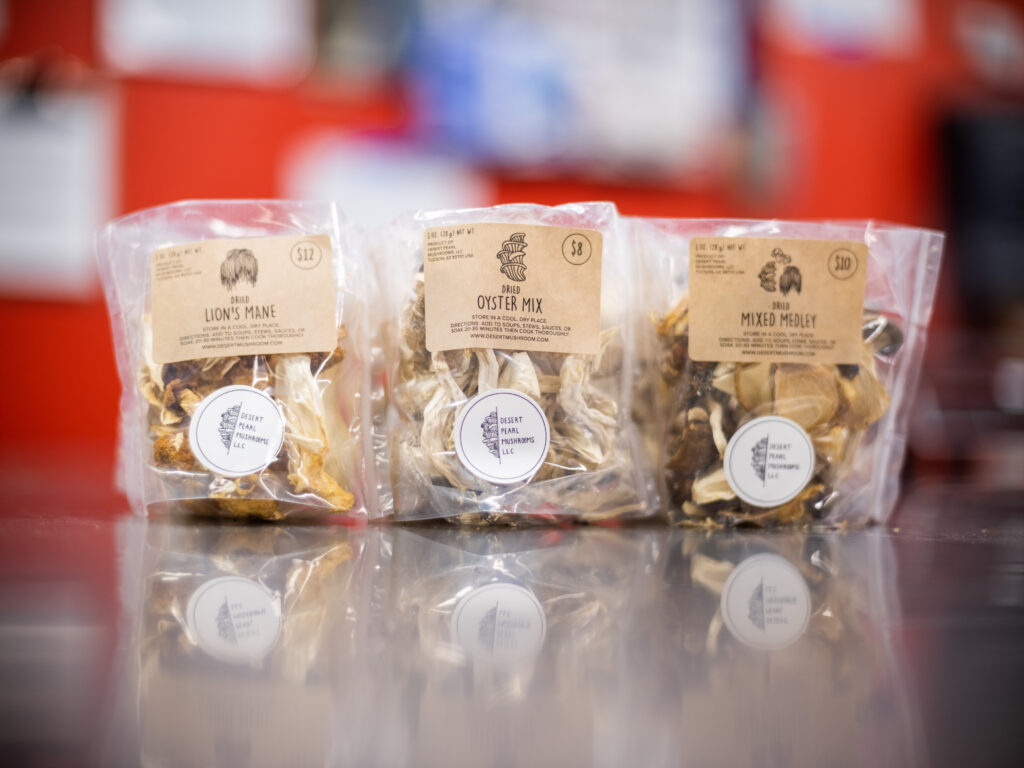
Other products include dried, powdered, and ground mushrooms and a variety of tinctures used as natural medicinal boosters. These can be found on their website. And if you’re so inspired you can buy a kit to grow your own.
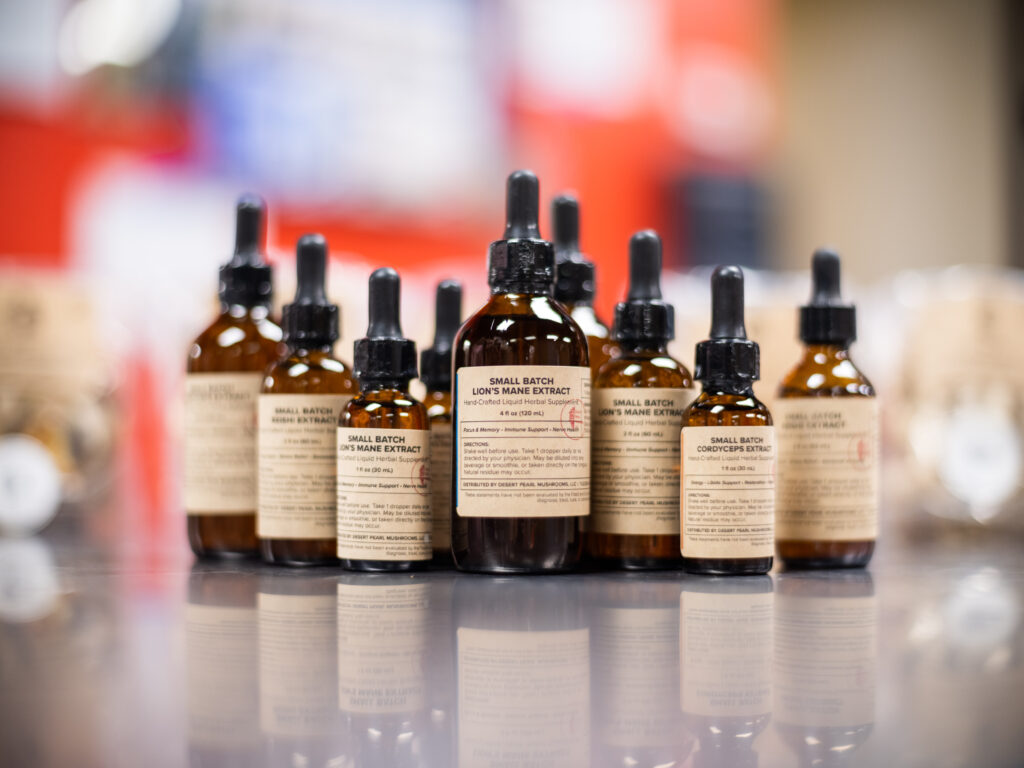
For more information, visit desertmushroom.com.
Tucson Foodie is a locally owned and operated community. Thanks to our partners and members, we are able to offer paywall-free guides and articles. We value your support and invite you to become a Tucson Foodie Insider today.
Rita Connelly is the author of “Lost Restaurants of Tucson,” “Historic Restaurants of Tucson,” and “Arizona Chimichangas,”all published by The History Press. Growing up in a large Italian family instilled in her an appreciation for the important role food plays...